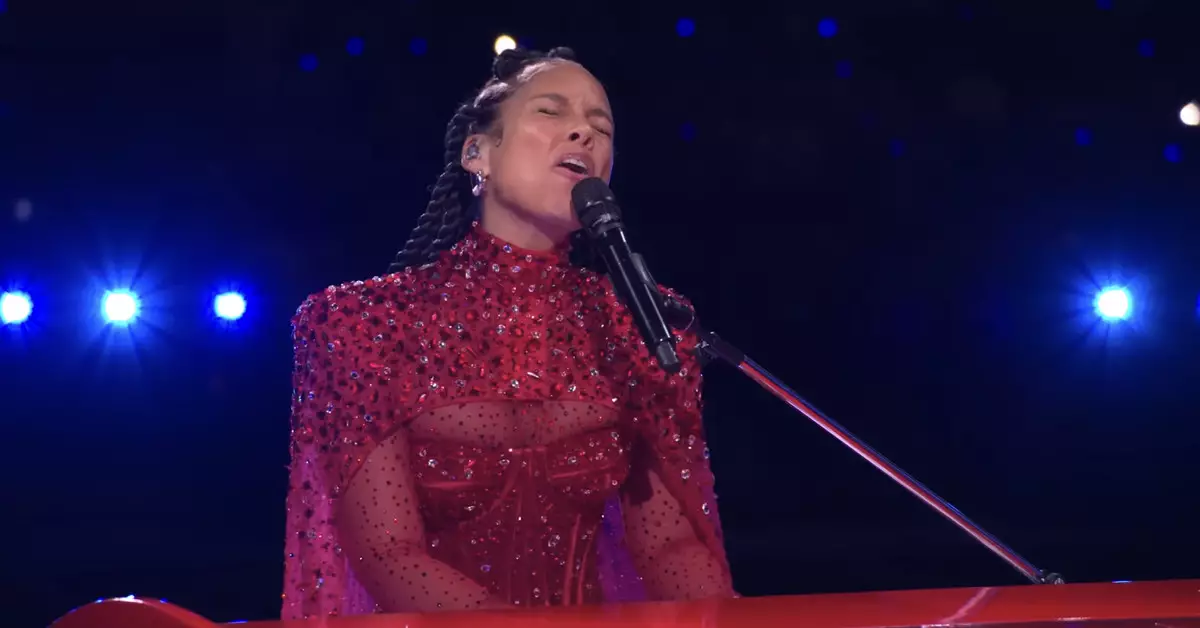In the world of entertainment, what we see on our screens is not always an accurate representation of what actually happened. Behind every performance, there is a team of editors who carefully craft the final product. These editors possess the power to shape narratives, enhance performances, and even hide mistakes. One recent example of this is Alicia Keys’ surprising and brief cameo during Usher’s Super Bowl 2024 performance.
During Usher’s performance, the camera pans towards Alicia Keys, who is playing a grand piano, adorned in a billowing rose-red cape. She begins to play the opening notes of her hit song “If I Ain’t Got You,” and her smooth voice eases in. However, to the surprise of the audience, her voice cracks immediately. This unexpected moment created a sense of vulnerability and authenticity that resonated with those who witnessed it live.
Unfortunately, for those who did not watch the performance live, there is no evidence of Alicia Keys’ voice crack in the official video posted by the NFL after the fact. It appears that the editors intentionally removed this moment from the final version. This type of manipulation is not uncommon in the entertainment industry. Jennifer Lopez’s raw performance on Saturday Night Live in 2010 was altered for a later video upload, as pointed out by AV Club. These edits often involve cutting out bits of audio and lengthening nearby notes to fill the space seamlessly.
The art of editing in entertainment goes beyond simply hiding mistakes. It involves shaping narratives, emphasizing certain moments, and crafting a cohesive and visually appealing final product. Editors have the power to enhance performances, add special effects, and create an immersive viewing experience for the audience. Without their expert touch, the raw footage captured during a performance may not have the same impact or emotional resonance.
One could argue that the careful editing of performances is a necessary evil in the entertainment industry. The pressure to deliver flawless performances often leads artists to strive for perfection. However, this pursuit of perfection can sometimes overshadow the authenticity and vulnerability that resonate with audiences on a deeper level. By hiding mistakes, we perpetuate the illusion that performers are infallible, untouchable gods of entertainment.
While editing can create stunning visuals and seamless performances, it is essential to maintain transparency and authenticity in the final product. Audiences should be made aware of any edits or alterations made to a performance, whether it be through social media posts or news stories. By acknowledging and embracing imperfections, we can foster a greater connection between artists and their fanbase.
The art of editing in entertainment is a powerful tool that can shape narratives, enhance performances, and hide mistakes. However, it is important to strike a balance between perfection and authenticity. By maintaining transparency and acknowledging imperfections, we can create a more genuine and meaningful connection between artists and their audience. So, the next time you watch a flawless performance, remember that behind the scenes, there may be a team of editors carefully crafting the final product.


Leave a Reply